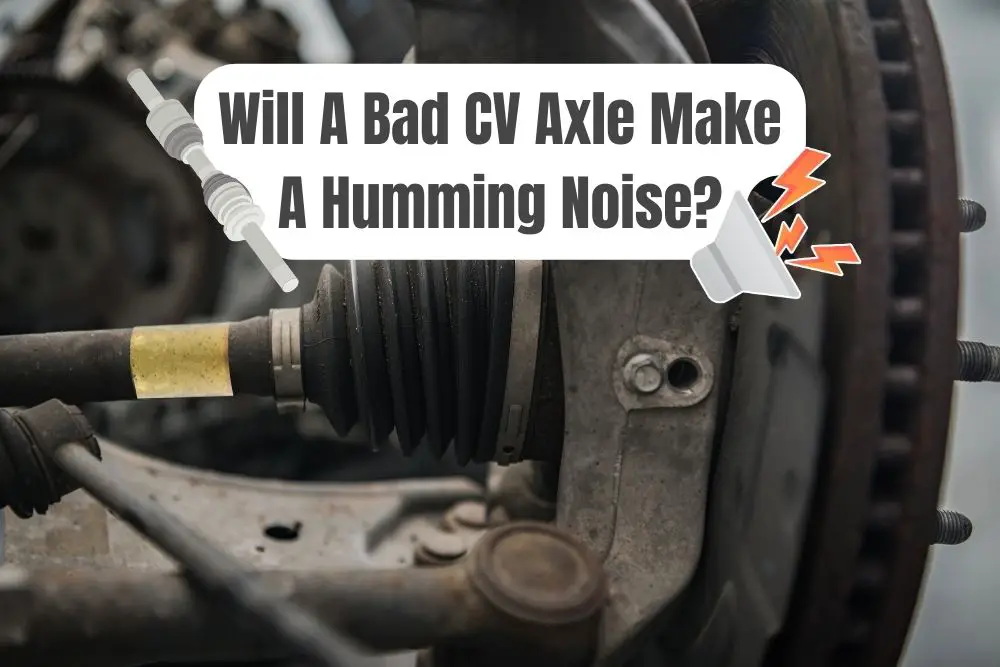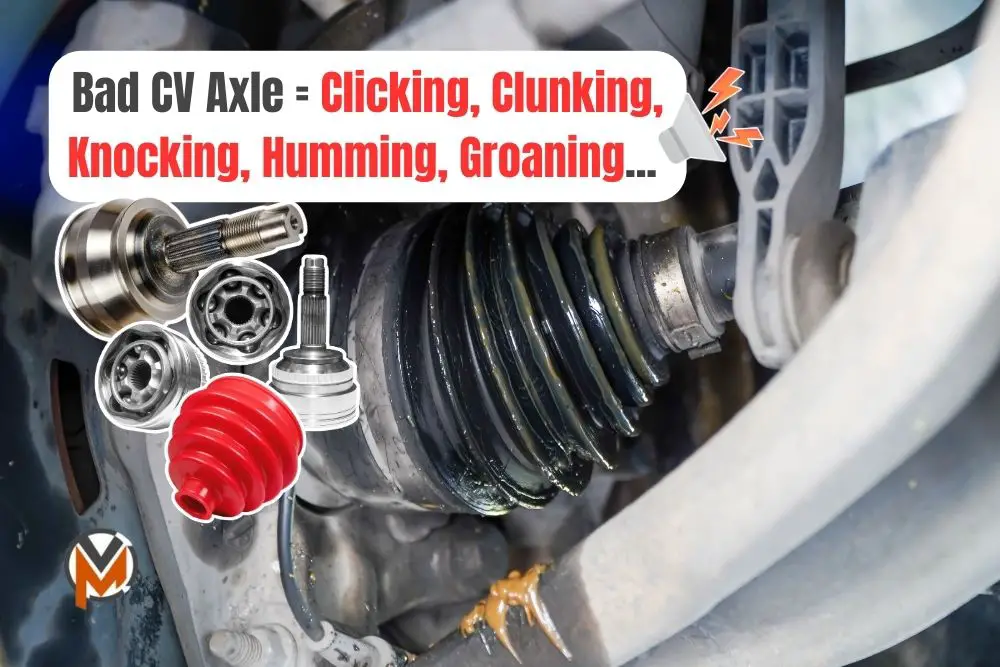Paying attention to odd noises and sounds in your car is a handy way to tell when something’s gone awry, or if something on your car’s failed. So, will a bad CV axle make and emit an unusual humming noise?
Unfortunately, a humming sound isn’t 100% indicative of a faulty CV axle, which makes diagnosing a worn-out CV axle much harder. In fact, a humming noise could be a sign of many random issues in your car.
A peculiar humming noise might be a sign of a bad wheel bearing, uneven tire wear, faulty differential, CV axle and joint wear, problems with your drivetrain, exhaust system leaks, transmission woes, and more.
On the other hand, while a humming noise might point to faults with your car’s CV axle, this humming can also be accompanied by loud clicking noises, a clunking or knocking sensation, as well as odd vibrations.
Tell The Difference Between A Bad Wheel Bearing Or A Bad CV Axle
From my experience, shared by many others online and fellow mechanics, is that a humming noise doesn’t necessarily entail a faulty CV joint or axle. In fact, a humming sound is often associated with bad wheel bearings.
Uneven tire wear or other tire-related issues are also typically the most common culprits that might emit a humming sound. Therefore, a peculiar humming sound isn’t normally related to worn CV axles or joints on a car.
Most of the time, CV joint or CV axle issues manifest as clicking or popping sounds, especially when making turns. This is due to your car’s CV joints and CV axles struggling under stress during angular movements.
However, it’s vital to consider that cars can exhibit distinct symptoms. A humming noise, while uncommon, can still point to a bad CV axle, especially if accompanied by other signs like shudders or worsening noise.
So, here’s a quick cheat sheet on what might be wrong if you hear a humming noise from your car:
- Constant humming = Could likely be a bad wheel bearing (tire problems could cause this, too)
- Pulsating humming = This is often related to the drive axle (so, it could possibly relate to the CV axle)
What Causes A Humming Noise From A Car
With that in mind, if you do notice a constant humming noise emitting from your car, here are some of the most common problems and underlying issues that might cause it:
- Wheel Bearings – When wheel bearings wear out, they tend to make a constant humming or droning sound that often gets louder with speed. This sound is typically more pronounced when turning the vehicle, as the load on your car shifts to one side.
- Tire Problems – Uneven tire wear, poorly balanced tires, or tires with a rough tread pattern can also cause a humming noise. This is often accompanied by vibrations felt through the steering wheel or your car’s body.
- Differential Issues – Worn or damaged differential gears and bearings could produce a humming or whining noise, which is more noticeable at higher speeds.
- Faulty Transmission – Problems with your car’s transmission, such as worn gears and bearings, can lead to a humming noise. This humming noise might randomly change or disappear when the vehicle shifts gears.
- Power Steering Fluid – Issues with your car’s power steering system, such as a low power steering fluid level or failing power steering pump, can cause a humming or whining noise, often noticeable when turning your steering wheel.
- Exhaust System Leaks – A leak in your exhaust system can sometimes produce a humming noise. This might be more noticeable when the engine is under load or during acceleration.
- Drivetrain Components – Other drivetrain components, such as your u-joints and driveshafts, could wear out and cause a humming noise, often noticeable at specific speeds and during acceleration or deceleration.
- Engine Accessory Bearings – Components like your alternator, air conditioning compressor, and water pump have bearings that can wear out and produce a humming noise when they fail.
Bad CV Axle Symptoms
So, if you’re still wondering; “will a bad CV axle make a humming noise”, the quick answer is – maybe, but it is more likely that other problems can cause that humming sound, besides a faulty CV axle on your car.
It’s vital to consider that when you’re diagnosing a humming noise, it’s important to consider the conditions under which the noise occurs, like speed, engine load, and vehicle maneuvers, to help narrow it down.
CV Axle Noise
Still, a faulty or worn-out CV axle can emit odd noises, including:
- Clicking Noises – The most common and noticeable sound of a bad CV axle is a clicking or popping noise when turning. This noise is typically more pronounced during sharp turns or when accelerating out of a turn. The sound occurs because the CV joint has worn out, causing it to click as it rotates.
- Clunking Or Knocking Sounds – If your car’s CV axle is severely worn or damaged, you might hear a clunking or knocking sound when shifting gears or when starting to move the car. This noise indicates excessive play in the CV joint, which can be dangerous if not addressed.
- Humming Or Groaning Noises – While this is less common, a worn-out CV axle could sometimes produce a humming or groaning noise, especially if the issue is severe or if other related components are affected.



